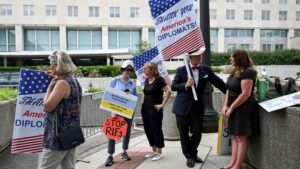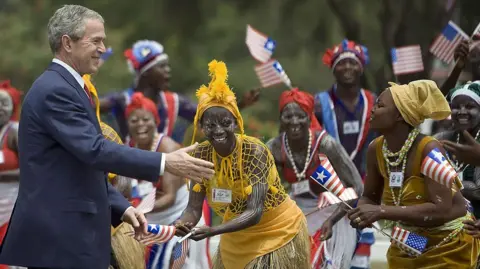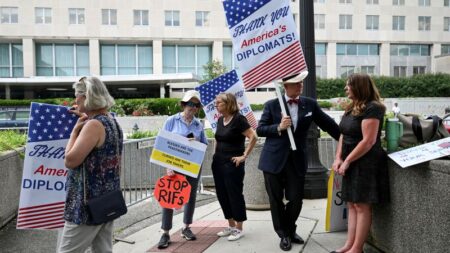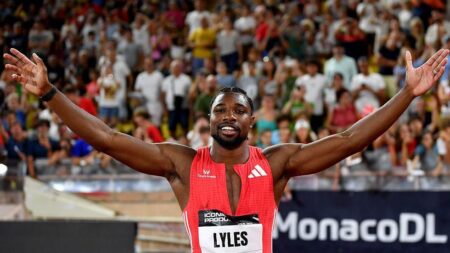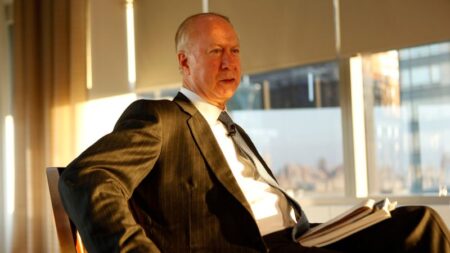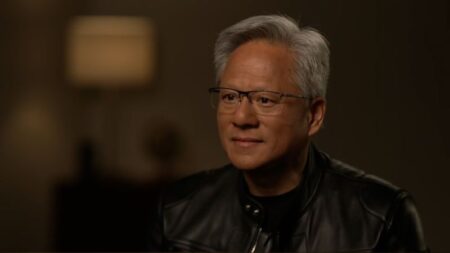**Five Essential Insights about Liberia for President Trump: Understanding Their English Dialect**
In recent diplomatic encounters, US President Donald Trump commended Liberian President Joseph Boakai for his impressive command of English. This praise inadvertently unveiled a fundamental misunderstanding about Liberia’s historical and linguistic ties to the United States. While Trump expressed curiosity about Boakai’s education, he overlooks the rich tapestry that intertwines Liberia’s identity with that of America.
**The Unique Origins of Liberia**
Founded in 1822 by freed African-American slaves, Liberia stands out as a testament to the complex interplay of American history and African identity. The settlement’s inception came about as a result of the American Colonization Society (ACS), which aimed to resettle freed slaves from the United States to West Africa. In 1847, Liberia declared its independence, becoming the first African republic. Its historical connection with the USA runs deep; the first ten presidents of Liberia hailed from America, showcasing the lasting cultural and political influence of the United States on Liberian governance and society.
**Cultural Influences and Language**
One noteworthy aspect of Liberian heritage is its language. English serves as the country’s official language and, significantly, many Liberians speak with an American accent, a remnant of their forebears’ experiences in America. This unique dialect is influenced by various factors, including the presence of multiple indigenous languages. In total, Liberia is home to over two dozen languages, reflecting its diverse ethnic composition, with President Boakai himself belonging to the Kissi ethnic group, where he first learned his native tongue before acquiring English at school.
**Monrovia: A City of American Remembrance**
Liberia’s capital, Monrovia, is named after James Monroe, the fifth president of the United States, who was a staunch supporter of the ACS. The architectural landscape of Monrovia reveals a direct correlation to American styles, with streets echoing names reminiscent of America’s colonial past. Such intersections of memory are further encapsulated in local institutions, such as the John F. Kennedy Medical Center, epitomizing the enduring link between American historical figures and Liberia’s identity.
**A Similarity in Flags**
The flags of Liberia and the United States exhibit remarkable similarities, with 11 alternating red and white stripes and a blue square featuring a solitary white star. The design serves a symbolic purpose; the star represents Liberia as Africa’s first republic to gain independence. This resemblance is not merely decorative; it speaks volumes about the country’s historical allegiance to American principles of liberty and statehood.
**Modern Day Connections: A Sporting Legacy**
Timothy Weah, the son of George Weah, Liberia’s former president, exemplifies modern connections between Liberia and the United States through sports. An accomplished professional soccer player for Juventus and the USA national team, Timothy Weah not only represents Liberia on a global platform but also embodies the transnational lineage that connects them to America.
**Reactions to Trump’s Comments**
The reactions to Trump’s comments on Liberian English have sparked both discussions and debates. Liberian Foreign Minister Sara Beysolow Nyanti emphasized that there was no offense taken and clarified that his remark was perceived as a genuine compliment regarding President Boakai’s English proficiency, which indeed differs from other African dialects. Liberians, however, also expressed concern about broader misconceptions regarding Africa’s multiculturalism and linguistic diversity. Individuals like accountant Joseph Manley called for better briefings for global leaders about Liberia’s educational excellence and rich heritage.
In summary, President Trump’s encounter with President Boakai serves as a revealing moment that highlights the intricate ties between the United States and Liberia, characterized by a shared history, intertwined languages, and cultural exchanges. To truly appreciate Liberia, one must understand the historical nuances that shape its identity today. Recognizing this relationship enhances diplomatic engagement and affirms the significance of shared understanding in a multicultural world.

